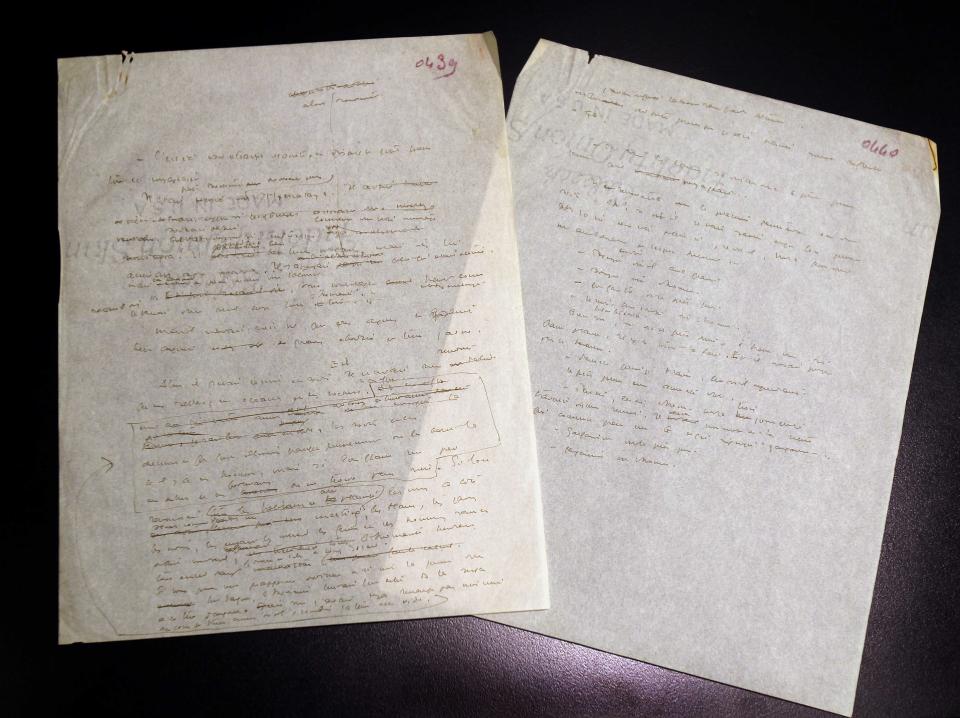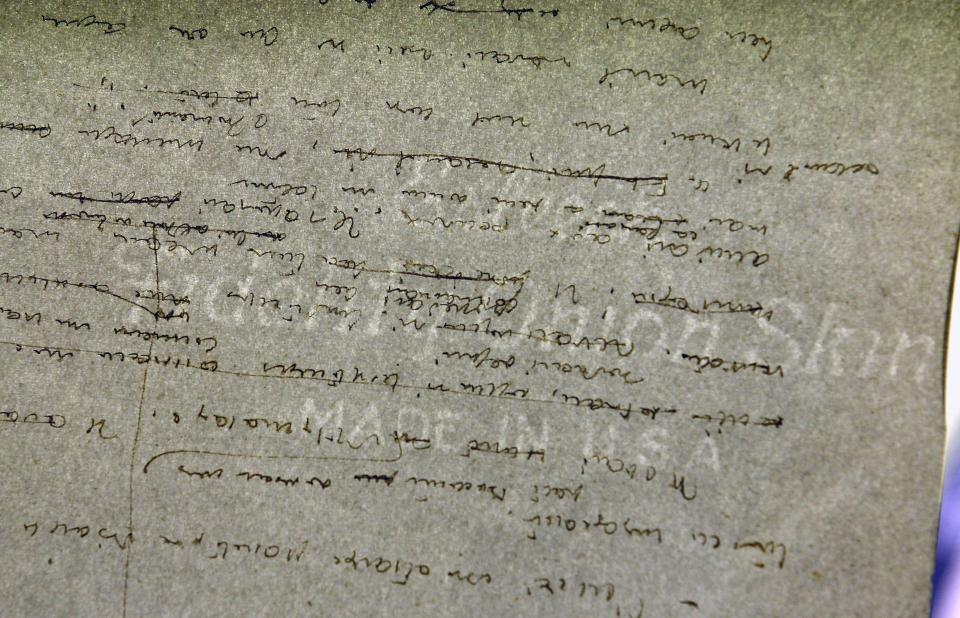'Little Prince' discovery offers new insight
PARIS (AP) — Newly-discovered draft pages of Antoine de Saint-Exupery's "The Little Prince" — that may shed new, political insight on the classic book — have been put on display at a Paris auction house for the first time.
Following their surprise discovery in private hands two months ago in France, the handwritten pages about the young, curious prince who embarks on interplanetary adventures, will be auctioned off later this month after a rare public viewing.
"It's incredible. No one knew they even existed two months ago, and now someone can own them," auction specialist Benoit Puttemans said Thursday. "They're the only pages from 'The Little Prince' in the world apart from the manuscript in the New York (Morgan) library."
The text comprises of near unreadable, annotated writings on two translucent paper sheets, that, when put to the light both read "Fidelity Onion Skin" — the watermark on Saint-Exupery's signature paper.
The first page contains a piece of text that's partly retained in chapter 19 of the published work. But the second leaf of the work is completely original.
The little prince arrives on Earth and meets the first person on the planet, a completely new character, who's described as an "ambassador of the human spirit."
This "ambassador" is almost too busy to speak to his inquisitive interlocutor, saying he's looking, in vain, for a missing six-letter word. The meaning of this is not immediately clear.
"That's typical Saint-Exupery. You see here he loved to playfully make words up. The surprise auction of original pages and text is a first in history," added Puttemans.
It's not the first time "The Little Prince" has surprised.
In 1943, the text turned from a scribbled manuscript by a relatively unknown author, into a literary phenomenon that has since sold 140 million copies, in about 260 languages.
After The Bible, "The Little Prince" is the most translated book in history, according to the Paris-based Saint-Exupery Foundation.
Sadly, the author would never know the extent of his book's success: he died shortly after its first publication in a mysterious plane crash in 1944 while on active service in World War II.
For a man known for his pacifist views and political engagement against the war, it was an especially tragic end. But though it killed him, war, was, ironically enough, thought to have shaped much of his writing, including "The Little Prince."
This is a view shared by many Saint-Exupery enthusiasts, including Paris-based 20th century manuscript expert Olivier Devers.
"At the beginning of the (published) book, the narrator draws a boa constrictor eating an elephant. It's strange. How can a small snake eat one of the largest animals on earth? But you can see the snake being peace, and the elephant being war. He dreamt that the small idea of peace could eat up the war that was going on."
For Devers, however, this thought is only speculation, and it's the two annotated pages on sale this month that provide the "only direct reference" to his work's anti-war meaning.
"He was a dreamer, he dealt with the war by floating up and dreaming. The six-letter word the "ambassador" is looking for but can't find has a humanist meaning. If you look at the context, you see that the word he can't find is "guerre," (or "war"). It's even more powerful because he doesn't say it."
The new pages will go under the hammer at Artcurial auction house, Paris on May 16.



